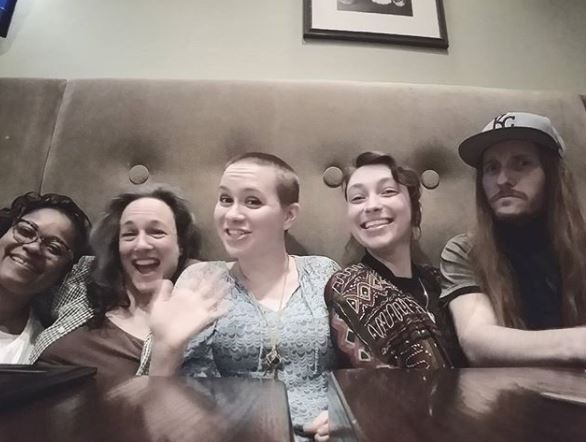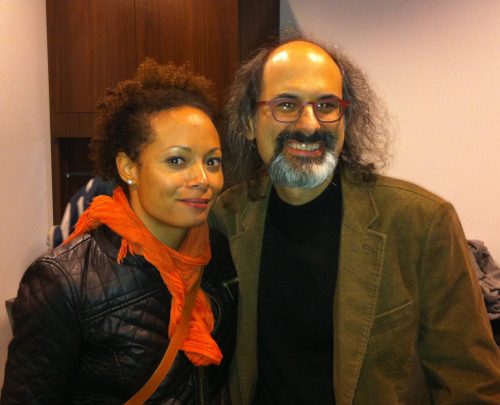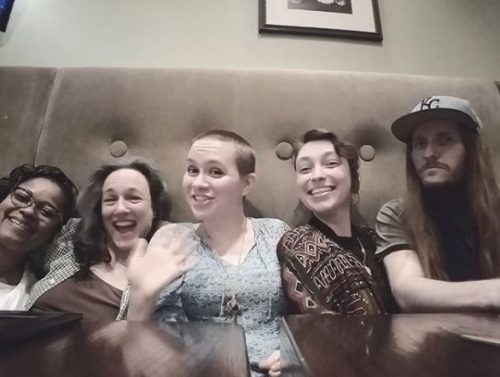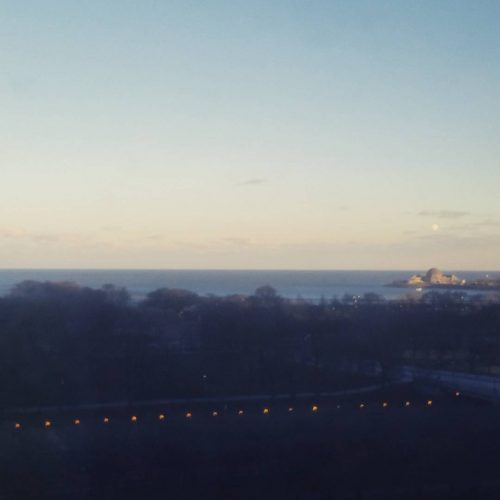
The End Is Near
People keep asking me if I feel excited about graduating in just a few short months. It’s a question to which most people want me to respond with, “Yes! So Excited! Listen to my big plans!” While that is definitely part of my response, my answer, like almost all things, is more complex.
Columbia’s Poetry MFA is a two year program. Some days that feels like plenty, and some days it feels like never enough. The first year is devoted to classes and workshop. I could choose from a variety of classes on literature, poetry, craft, and more. Some days it can feel like the studying is especially spread out from each other.
When I’m talking to students about Columbia’s poetry program, I often say that one of the biggest draws for me is how diverse the faculty is stylistically. David Trinidad doesn’t write like Tony Trigilio doesn’t write like CM Burroughs doesn’t write like Lisa Fishman, etc. The same goes for their interests. There is very little overlap for the topics that may be covered in their craft seminars and lit classes. Some students might find this a little overwhelming. With so many voices, it can be hard to determine which one you want to hear the loudest. I find, however, that the contrasting voices don’t become dissonant. In fact, what I have discovered is a strong sense of what I want my poetry to be. It makes me feel more sure of liking what I like when it comes to reading others’ poetry. I also frequently find that, however dissimilar my classes may be to one another, the topics tend to converge almost magically into whatever I’m writing or thinking about. Instead of dissonant voices, all of the ideas swirl around me and consolidate into whatever I need to think about my writing complexly and fully.

Tony Trigilio & CM Burroughs
(photo credit: David Trinidad)
The second year of the MFA switches focus slightly. While I am still taking classes, I am also focused on producing a book-length manuscript which serves as my thesis for the fulfillment of my degree. During the fall semester, I took thesis prep, which was focused on producing and collecting the poems that would become our thesis. This semester, I have one-on-one advising with the magnificent Lisa Fishman, who provides me with detailed notes and thoughts concerning the editing of my manuscript. The first time I set down my 55 pages of manuscript was the first time she saw them. I was terrified. What if she hated it? What if she was so disgusted that she kicked me out of the program? What if she told me I needed to start from scratch? I knew this would not happen. And anyways, I was proud of what I had written and felt pretty strongly that my vision for the project would not be so far removed from her perception of it. Of course she was supportive. And of course she provided some much needed critical feedback which provided a strong foundation as I push through editing the long, long poem that is my manuscript.

A special selfie with Lisa Fishman
(photo credit: Mica E Woods)
Meanwhile, I’m starting new projects in other classes, working closely with two professors, and still spending almost every night gazing at my computer screen into the endlessly engaging abyss of poetry. Grad school is a push, a stretch, and even as obvious as it sounds, a learning experience. I am challenged into new ideas daily and supported as I work through them.

A late evening view from 624 S. Michigan makes the idea of ending a bit more bittersweet
This morning, as I was riding the bus to school, I happened to sit with a student that had been in a class that I’d been a TA for during my first semester at Columbia. I was telling them about my plans for post-master’s life. They asked the obligatory, “what’s next?” question. I had a long winding answer about feeling I was so absorbed in my thesis that it was hard to think of other things. About how maybe a PhD in a year, and more teaching in the meantime. When they asked me if I was excited, I said “yes, and very nervous,” because what transition isn’t? In the meantime, I’ve got more work to do, and a thesis to edit.
